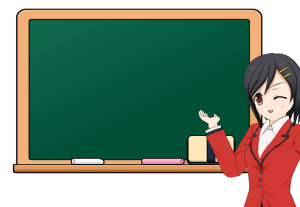We are tired of seeing it everywhere. A lot of sites on the internet, as well as gurus, books and methods, state without hesitation that they can get learners to speak a language fluently in such a ridiculous periods of time as three, six months or a year. In view of this, I can say without doubt that we are in front of a commercial strategy and we shouldn’t trust it much, because the truth is that:
Learning a new language is a slow process and we have to pass through some phases
Once again we have to go back to the beginning, to that epoch when we were children and learnt our mother tongue with total effectiveness. From the moment of the birth, a child is completely exposed to the language of his surroundings; however, they don’t say their first word till one year passes. Moreover, those first attempts are still very far from the true command of a language which, much we may resent it, takes some years.
That is because before we are ready to talk, we must go through an assimilation phase in which the language is slowly integrating in our mind, so that, the first step of the process is comprehension. To speak a language, it is necessary to understand it and once we have achieved it, the rest comes naturally. In fact, children start talking on their own and they do it exclusively when they feel ready for it, regardless of their parents’ wishes.
That is why I don’t recommend starting to talk for the first year
What is more, I don’t even recommend it till we feel ready for it, regardless of the time it takes, just to keep the great enemy of the learning languages process away: pressure. In fact, a lot of people fall prey to frustration and abandon their studies because they don’t see fast results, and that’s why we need to be clear how things work, accept it, understand it and set long term realistic goals, even if they take some years. With this in mind, we are certain to be successful.
So, the next time you think about the process, keep in your mind the image of the children, the best learners of the world. If they need five or six years to speak fluently a language, and that being immersed in it, imagine how much time it can take for the rest. But I also have to say that to speak a language we don’t need to be perfect and, of course, it is perfectly appropriate to jump to it in spite of our failures. Even children do it at the beginning. Knowing this, we can always shorten the timeframe.
Before all of this, we can get inside the conversations, if possible with the guide of a tutor, but knowing what we are likely to achieve and with the right expectations. I mean, if we are realistic, an adult with less than an intermediate level can have talks such as “mi favorite color is blue” or “hello, mi name is John and I work as a teacher”. While this is not bad, we have to admit that basic levels are not suitable to keep an entertaining conversation between adult people, which can lead us to boredom or what is worse, to feel frustrated for not being able to have a normal conversation. That’s why I say again:
Speaking well takes a lot of time, so it is better to release the pressure and start doing it when we feel ready and comfortable.
Lately I have noticed that a lot of people with beginner or basic levels are looking for Skype pals to practice and this leads inevitably to failure. Unfortunately, when those students realize that are unable to develop a conversation, they think they have to give up, and this can cause them to abandon learning definitively, which is even worse.
We don’t learn because we talk. On the contrary, speaking is the consequence of having learned.
Nevertheless, in reference to this topic, there are still some appreciations to make:
- Not all the languages are the same. If we choose a language of the same linguistic root as the one we talk, the process will be obviously faster.
- Not everybody is the same, each one has their own pace and there are some who fell comfortable earlier. That’s one we have to consider individually which the best time is for us.
- There are personal facts that make us different, which means that while some individuals may need a good background to start talking, other ones aren’t worried about making mistakes and prefer to start practicing.
To summarize, we could say that, as in other facets of life, people would like to know how to obtain fast and miraculous formulas, but these rarely exist. The good news is that with patient and will, we can get it, so forward!





